David Stratton: the day I met the young Steven Spielberg
I thought of our early encounter while watching The Fabelmans, Spielberg’s thinly veiled autobiography in which the young hero, Sammy Fabelman, discovers the movies and becomes a filmmaker.
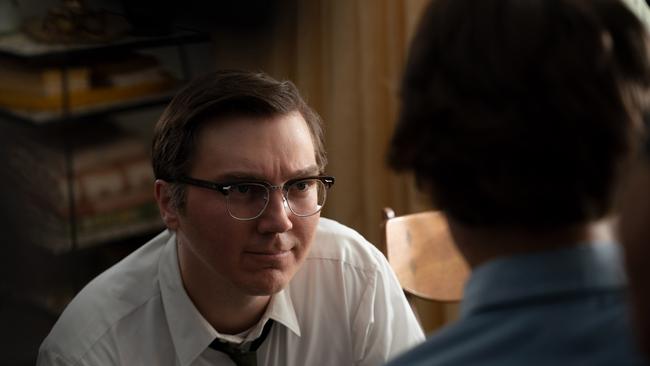
The Fabelmans
In cinemas
I thought of this encounter while watching The Fabelmans, Spielberg’s thinly-veiled autobiography in which the young hero, Sammy Fabelman, discovers the movies and becomes a filmmaker.
On January 10, 1952, in New Jersey, six-year-old Sammy (Teo Zoryon France DeFord) is taken by his parents, Burt (Paul Dano) and Mitzi (Michelle Williams), to see his first movie in a cinema: Cecil B. DeMille’s circus epic The Greatest Show on Earth. The kid is apprehensive: he’s afraid it will be too dark inside the cinema, that the images on the screen will be too big. His father not only allays his fears but attempts to explain how moving pictures move – and in they go. Sammy is gobsmacked by the horrific train crash in the movie (which is amazingly well staged by DeMille’s technical team in an era long before CGI effects were possible) and goes home to re-create the scene on his model railway. When his Dad gives him an 8mm cine camera to film the wreck, a filmmaker is born.
The Fabelmans is a lovely film about a boy whose hobby will become his profession. As he gets older, Sammy (Gabriel LaBelle) continues to make home movies, telling stories inspired by films he’s seen in the cinema, such as John Ford’s The Man Who Shot Liberty Valance, and using his friends and family as actors. Burt becomes concerned that his only son – Sammy has three younger sisters – is too obsessed with his hobby, especially when Sammy asserts that he wants to make movies for a living.
“I want you to do something real, not something imaginary,” he tells his son.
A surprise visit from Uncle Boris (Judd Hirsch) gives the boy more insights into the world of showbusiness – he had worked on silent movies and tells his nephew that “art is no game – it’s as dangerous as a lion’s mouth.” Meanwhile the family, accompanied by Burt’s best friend, ‘Uncle’ Bennie (Seth Rogen), relocates to Arizona and then to Northern California as Burt, a skilled engineer, accepts better and better jobs.
As a Jew, Sammy gets bullied at high school by the antisemitic Chad (Oakes Fegley) and falls for Monica (Chloe East), a devout Christian who has hung a large crucifix over her bed.
Many of Spielberg’s films – including E.T. and Close Encounters of the Third Kind – feature families where there is just a single parent, and this autobiography, which is dedicated to the director’s parents, also explores the ways in which an apparently happy marriage falls apart. You could probably accuse Spielberg of lingering rather too long over this very personal tale; certainly the film is on the lengthy side. But it’s an enthralling insight into the background of one of America’s most popular and talented filmmakers and it also touches on how the torch was passed on by the veteran Hollywood directors, who began their careers in the silent era, to young directors like Spielberg who represented a new generation that grew up watching movies.
The film concludes with a wonderful scene in which Sammy gets to meet one of the all-time great veteran directors.
It’s an encounter Spielberg described to me on that day in San Sebastian, and he stages it beautifully here.
I won’t name the famous director, or the actor who plays him because that’s a surprise that should not be revealed beforehand. Suffice to say that the scene ends an affectionate and insightful peep into the inspiration and obsessions of a young filmmaker.
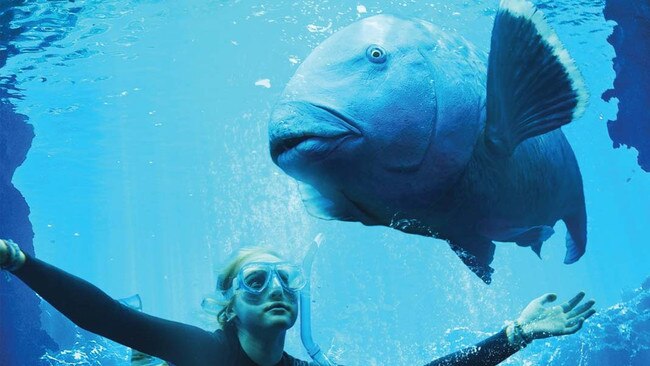
Blueback (PG)
Four stars
In cinemas
In 2013 producer-director Robert Connolly assembled a distinguished team of Australian directors and actors to film a number of Tim Winton stories as The Turning. Connolly returns to Winton with his extremely handsome new film, Blueback, an adaptation of Winton’s 1997 novel of the same name.
This supremely beautiful film takes place over three periods of time. In the present, Abby Jackson (Mia Wasikowska) is a marine scientist exploring the threatened Great Barrier Reef when a call from West Australia tells her that her mother, Dora (Liz Alexander), has suffered a debilitating stroke. As she heads west for the beachside home where she grew up, Abby looks back on her life. At the age of 8, played by the delightful Ariel Donoghue, the child was introduced to swimming underwater by her mother (Radha Mitchell), who loved the sea. The pair discover a huge blue groper living in a cave in their bay and Abby befriends the giant fish, calling it Blueback.
At 15, Abby, now played by Ilsa Fogg who is also very good, becomes concerned by the overfishing in the bay and by the arrival of developers, whose plans are fiercely opposed by both mother and daughter.
The film’s environmental concerns, typical of the author, are nothing if not timely and, indeed, the very thought that this pristine coastline could be turned into resorts and hotels is depressing. Mother and daughter have a friend in Macca (Eric Bana), a cheerful fisherman, and another in Briggs (Pedrea Jackson), an aboriginal youth with whom Abby hung out as a teenager and who, in the present, has grown into a cheerful, charming man (Clarence Ryan).
An exceptional cast brings this very beautiful and ultimately moving film vividly to life. The casting is particularly good as, for example, Liz Alexander looks convincingly like an older Radha Mitchell and, as noted, the young actors playing Abby are excellent, as is Wasikowska as the adult Abby. Bana has a small part here, but he gives an electrifying performance. I was a bit concerned about the all-important depiction of the big fish, but the animatronic groper is surprisingly convincing. Nigel Westlake’s score is full bodied, and the photography, by Andrew Commis with superb underwater footage by Rick Rifici, is wondrous.
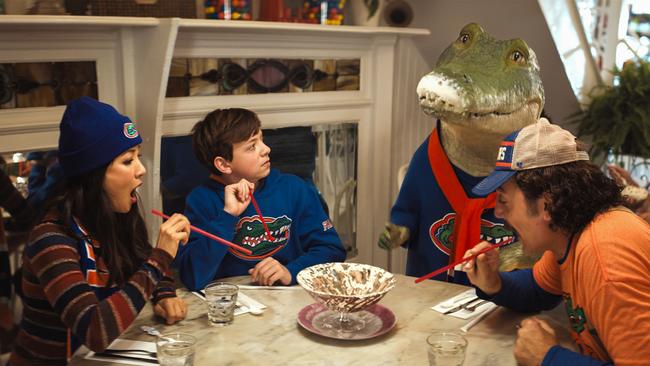
Lyle, Lyle Crocodile (G) *** (three)
In cinemas
Bernard Waber wrote a series of ten books – starting with “The House on East 88th Street” in 1962 – about a singing crocodile called Lyle. A carnivorous reptile of great size isn’t exactly the obvious subject for a kids’ film, but Lyle, who can sing and dance but gets stage fright when called on to perform in public, is an unusual crocodile and, though he never looks very convincing, he provides some moderate fun.
The film’s revelation is actually Spanish actor Javier Bardem who plays Hector P. Valenti, ‘star of stage and screen’, a brash illusionist looking for a gimmick. In a shop selling exotic animals he discovers the tiny singing Lyle and acquires him; but when the pair are on stage before an audience, the croc freezes and Hector abandons him, leaving Lyle living in the attic of the New York apartment building Hector owns. New tenants Joseph (Scoot McNairy) and Katie Primm (Constance Wu) move in with their 13-year-old son, Josh (Winslow Fegley), who soon discovers and befriends Lyle. The villain in all this is Mr. Grumps (Brett Gelman), the nasty, bearded neighbour who complains about everything and is very litigious.
There are some pleasant musical numbers, notably atop the St. James theatre (“Top of the World”) and another in which Lyle encourages Katie to change her cooking methods (“Rip Up the Menu”), but scenes in which Josh and Lyle forage in the garbage for food are, frankly, unedifying. Bardem’s totally unexpected performance as a song and dance man is the main reason to see the film.


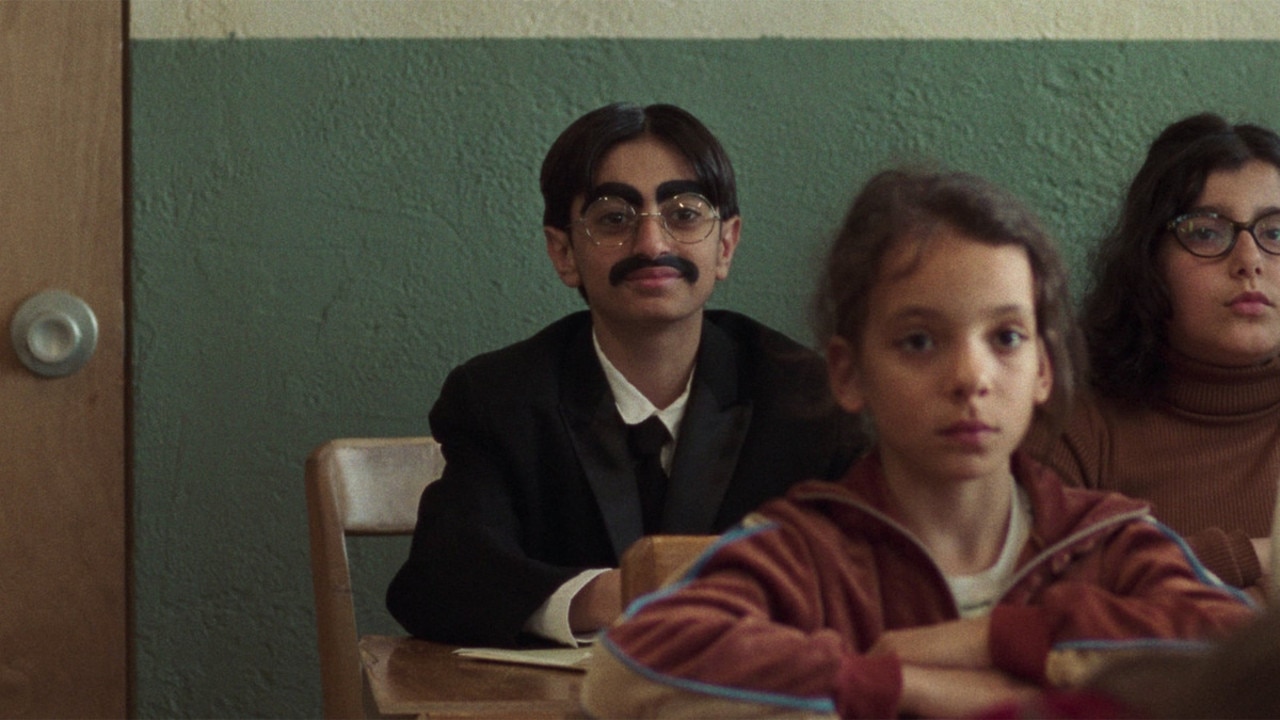
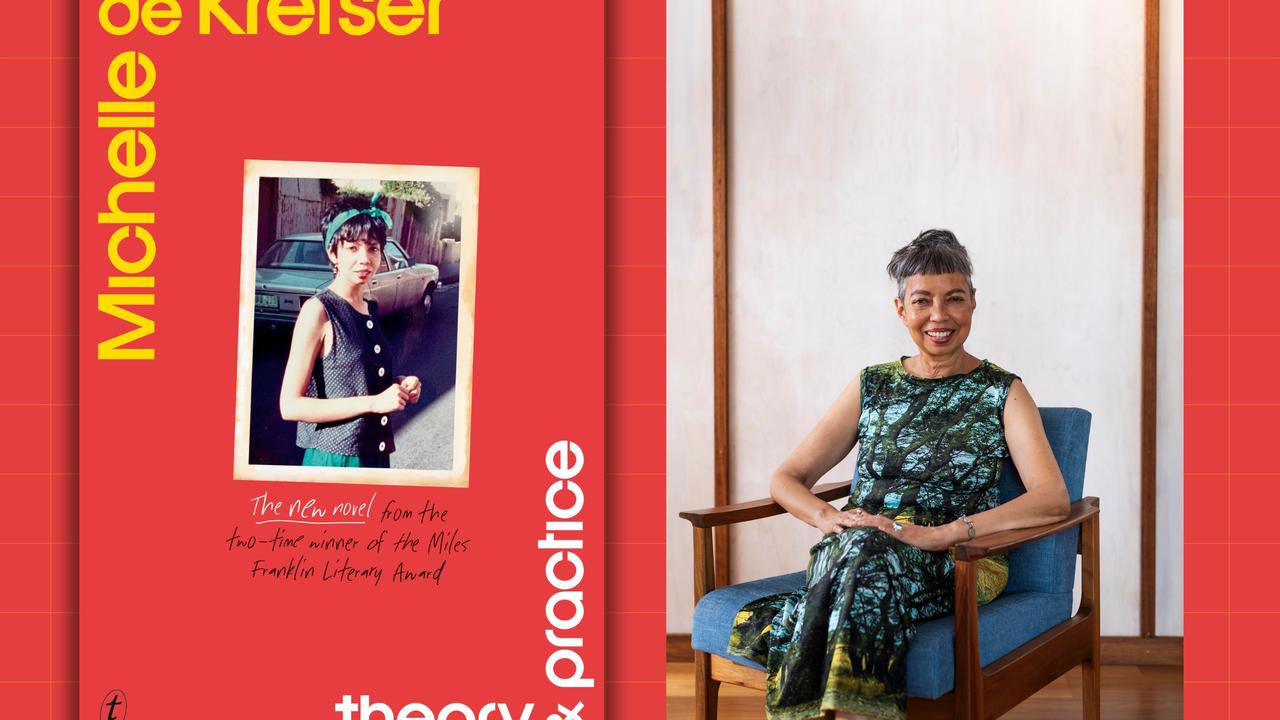
To join the conversation, please log in. Don't have an account? Register
Join the conversation, you are commenting as Logout